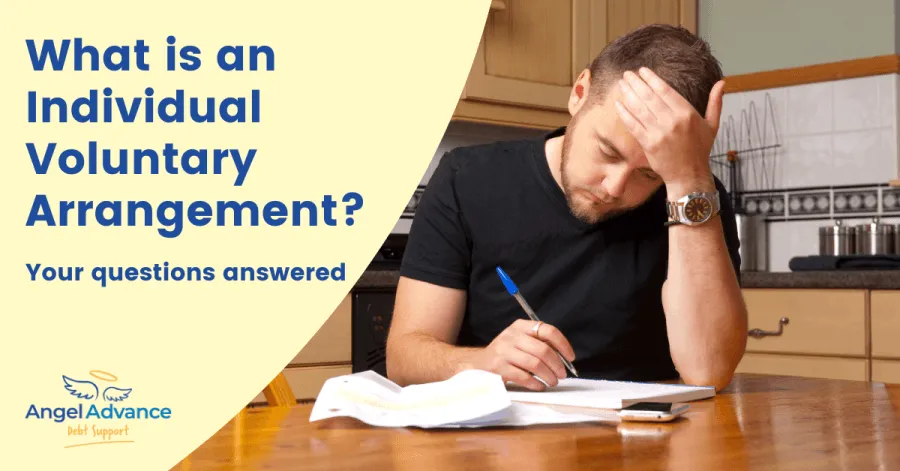If you’re new to the world of debt solutions, you might see some terminology that you’re not overly familiar with, including things like Individual Voluntary Agreement (IVA).
These terms can seem a little confusing and intimidating when you don’t have any context for them, so in this post, we’re going to break down exactly what an IVA is and help you decide if this is something you could benefit from.
What is an IVA?
An IVA is a legally binding contract you enter into with existing creditors where you agree that you’ll pay back the maximum you can afford towards your debt each month for a set period of time, usually 5 years – even if it doesn’t cover the full amount you owe them.
In exchange for keeping up your repayments, they agree to write off the remaining balances of whatever you still owe.
The advantages of an IVA
An IVA offers many advantages, and here are just a few of them:
- Once your IVA is agreed upon, creditors can no longer come after you for debts owed. They also can’t continue to add interest to outstanding payments
- You’ll be able to pay an amount you can afford over the term of your IVA
- Your debts will be completely written off at the end of the term, which allows you to start rebuilding your credit rating.
The disadvantages of an IVA
Of course, an IVA is not the best option for everyone and as with everything, there are some disadvantages to this debt management solution.
- Your IVA will be shown on the insolvency register
- During the term of your IVA, your spending is restricted
- An IVA will remain on your credit file for 6 years
- If you don’t keep up repayments, your plan will be void and you could be liable for the full amount plus interest.
Am I eligible for an IVA?
Although IVAs are becoming more common for people who are looking for a streamlined approach to paying off debt, not everyone is eligible for an IVA
While it’s always best to speak to a qualified debt advisor about your individual circumstances before entering into any type of repayment plan, here are just some things you need in order to be eligible for an IVA.
- You need to be insolvent and have no assets than can be sold in order to pay toward your debt
- You live in England, Wales, or Northern Ireland. Although IVAs don’t technically exist in Scotland, there’s a similar option known as Trust Deeds.
- You have debts of at least £5,000 and a minimum of 2 creditors
- You have a regular income and the ability to pay at least £80 per month to your IVA.
Will I have to pay for an IVA?
Only when you’re approved for an IVA will we charge a monthly fee of £55. However, this is not paid in addition to your IVA payments but forms part of them, so whatever your monthly repayment is, this will always be the same.
We will never charge you any upfront or hidden costs to set up your IVA.
How do I apply for an IVA?
If you’re sure that an IVA is the best solution for you to manage your debts, then we’d love to help you get set up. It’s always important to seek professional advice from a qualified debt advisor before entering into an IVA or similar agreement
Can I cancel an IVA?
Yes, although you’re always able to cancel your IVA at any point, it’s not a decision you should rush into and you should speak with your debt advisor before doing so as there may be alternative options available to you.
If you decide that cancelling is the best option, then you will be liable for the full remainder of your debt and interest.
Debt is not something you have to deal with on your own, so if you’re looking for a way to get it under control and think an IVA could be a potential solution for you, get started today by contacting our friendly team of experts who will be happy to discuss your options.

